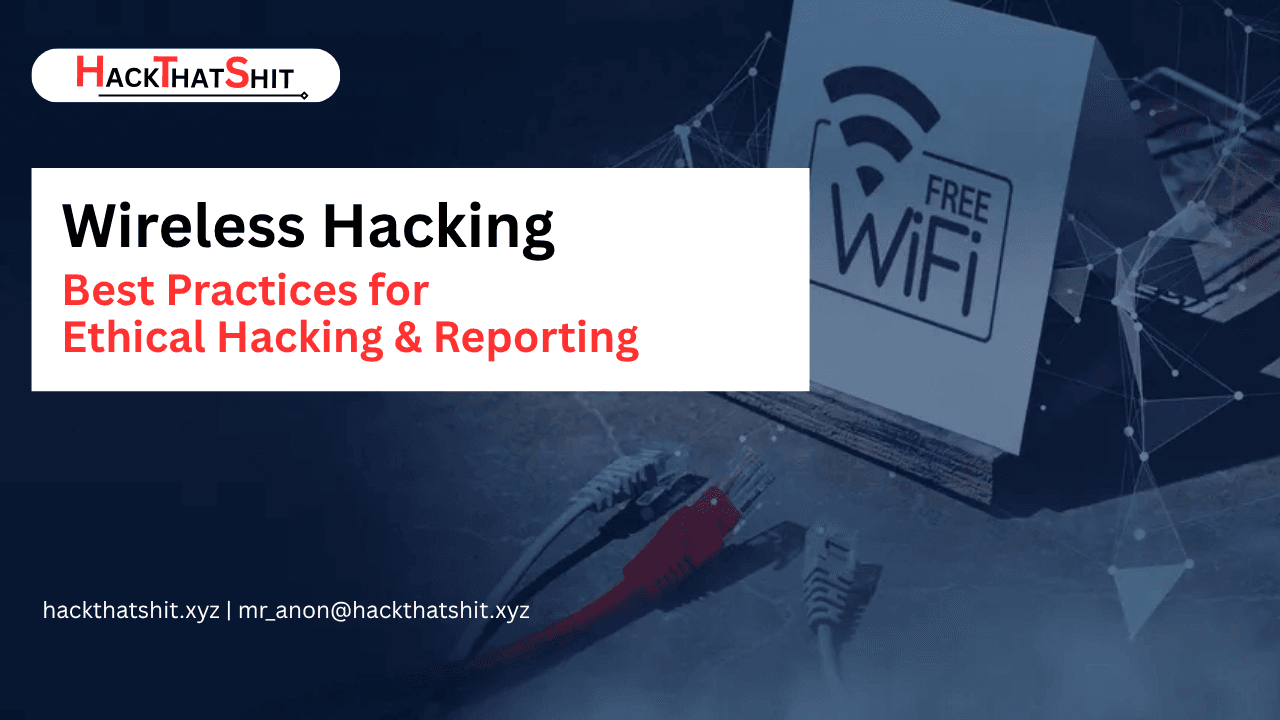Introduction
Congratulations — you’ve reached the final part of the Wireless Hacking Series! You’ve learned how to attack, defend, and analyze wireless networks. Now it’s time to focus on the most important part of hacking:
Being ethical, legal, and responsible.
This final post will guide you through responsible disclosure, how to report vulnerabilities, and how to build a career in ethical hacking.
✅ What is Ethical Hacking?
Ethical hacking is the authorized practice of probing systems, networks, and applications to find vulnerabilities before malicious hackers can exploit them.
Also called:
White-hat hacking
Penetration testing
Security auditing
Ethical hackers follow a code of conduct and operate within legal boundaries.
🚫 What Ethical Hacking is Not
Hacking random Wi-Fi networks “for fun”
Capturing credentials without permission
Cracking neighbor’s routers
Running attacks in live environments without consent
Intent matters, but authorization matters more.
🔄 Responsible Disclosure Workflow
If you find a vulnerability in a network, application, or device:
Document Everything Clearly
Include screenshots, logs, packet captures, etc.Find the Owner’s Contact Info
Use WHOIS, company websites, or bug bounty platforms.Reach Out Privately
Explain the issue clearly and respectfully.Don’t Exploit It
Avoid accessing private data or causing disruption.Wait Before Going Public
Give the owner time to patch (commonly 90 days)
📜 Get Certified as an Ethical Hacker
To go pro, consider certifications like:
| Certification | Focus | Website |
|---|---|---|
| CEH (Certified Ethical Hacker) | Broad ethical hacking | EC-Council |
| OSCP (Offensive Security Certified Professional) | Real-world pen-testing | Offensive Security |
| CompTIA Security+ | Security fundamentals | CompTIA |
| PNPT (Practical Network Penetration Tester) | Hands-on networking and exploitation | TCM Security |
🛡️ Build a Career in Cybersecurity
To go pro, consider certifications like:
Job roles for skilled wireless hackers include:
Penetration Tester
Red Team Operator
Security Analyst
Bug Bounty Hunter
Threat Researcher
Skills from this series can also help in:
Network security auditing
Malware analysis
Mobile & IoT hacking
Cloud security testing
🙏 Closing Advice
Stay curious, but stay legal
Always ask for permission
Share knowledge with others
Keep learning — tools and threats evolve constantly
Use your skills to protect, not exploit
Wrapping Up the Wireless Hacking Series
You’ve completed a full journey through:
✅ Wireless hacking theory
✅ Hands-on attacks
✅ Advanced exploits
✅ Defense strategies
✅ Professional practices
You’re now equipped to safely explore and test wireless networks — and even help secure them.
Thank you for learning with us at HackThatShit.xyz!
💻🛡️💥
Stay ethical. Stay sharp. Stay curious.

1 thought on “Best Practices for Ethical Hacking & Reporting”